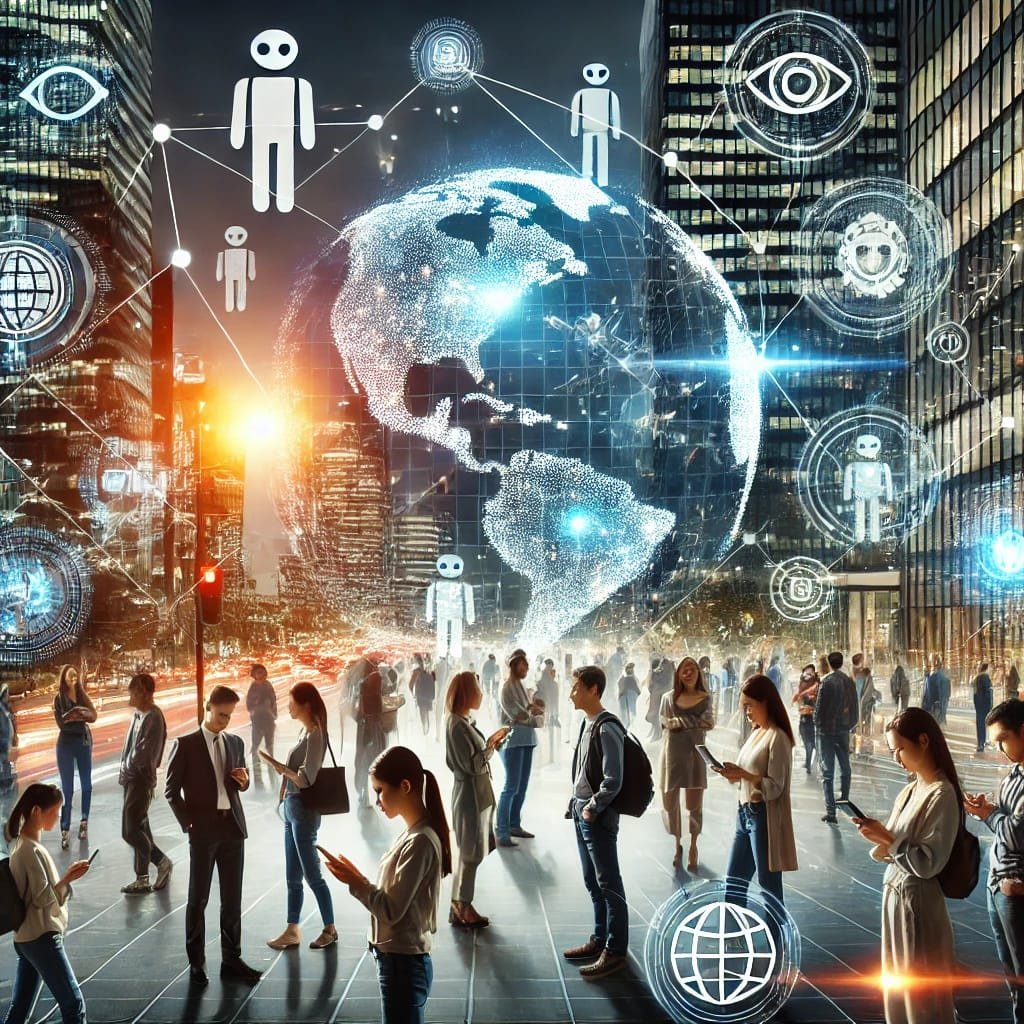
The Ministry of Electronics and Information Technology (MeitY) is set to organize a landmark global AI summit on July 3-4, 2024, in the national capital. The ‘Global IndiaAI Summit 2024’ aims to position India as a global leader in artificial intelligence (AI) innovation while ensuring that the benefits of AI are accessible to all and contribute to the nation’s socio-economic development.
This two-day event underscores the government’s commitment to the responsible development, deployment, and adoption of AI, fostering collaboration and knowledge exchange among global AI stakeholders.
Objectives of the Summit
The primary objectives of the Global IndiaAI Summit 2024 include:
Promoting Ethical and Inclusive AI: Ensuring that AI technologies are developed and used ethically, benefiting all sections of society.
Establishing India as a Global Leader: Positioning India as a front-runner in AI innovation on the global stage.
Fostering Socio-Economic Development: Leveraging AI to drive socio-economic growth across various sectors.
Encouraging Global Collaboration: Facilitating knowledge exchange and collaboration among international AI experts, industry leaders, and policymakers.
Key Highlights of the Summit
Distinguished Speakers
The summit will feature a host of eminent speakers, including:
Ashwini Vaishnaw: Minister for Electronics and IT, who will likely discuss the government’s vision and policy framework for AI development in India.
Jitin Prasada: Minister of State for Electronics and IT, who will share insights on initiatives and progress in AI deployment across various sectors.
Industry Leaders and AI Experts: Leading figures from global AI industries and academia will present their perspectives on the latest advancements and challenges in AI.
Key Themes and Discussions
Ethical AI Development: Addressing the ethical implications of AI and ensuring that AI systems are transparent, fair, and accountable.
AI for Social Good: Exploring how AI can be harnessed to solve societal challenges, including healthcare, education, and agriculture.
Innovation and Research: Showcasing cutting-edge AI research and innovations from India and around the world.
Policy and Regulation: Discussing regulatory frameworks that balance innovation with safety and privacy concerns.
International Collaboration: Strengthening global partnerships and collaborations in AI research and development.
India’s Role as the Lead Chair of GPAI
As the lead chair of the Global Partnership on Artificial Intelligence (GPAI), India will play a pivotal role in advancing GPAI’s mission of promoting safe, secure, and trustworthy AI.
The summit will bring together member countries and experts to discuss collaborative efforts and share best practices for the responsible use of AI.
GPAI’s Commitment
GPAI’s core objectives align closely with the themes of the Global IndiaAI Summit:
Safe AI: Ensuring that AI systems are robust, reliable, and secure.
Trustworthy AI: Building public trust in AI through transparency and accountability.
Inclusive AI: Making AI technologies accessible to diverse populations, including marginalized communities.
The Significance of Ethical and Inclusive AI
Ethical AI
The ethical implications of AI are vast and complex. Ensuring that AI systems are developed and deployed ethically involves:
Transparency: AI systems should be explainable and understandable to users and stakeholders.
Fairness: AI should be free from biases that could lead to discrimination.
Accountability: Clear mechanisms must be in place to hold AI developers and operators accountable for their systems’ decisions and actions.
Inclusive AI
Inclusivity in AI development ensures that the benefits of AI are distributed equitably across society. This involves:
Access to AI Technologies: Ensuring that AI tools and services are accessible to all, including rural and underserved communities.
AI Education and Training: Providing education and training opportunities to build a diverse and inclusive AI workforce.
Addressing Societal Challenges: Using AI to address pressing issues such as poverty, healthcare, education, and climate change.
AI for Socio-Economic Development
Healthcare
AI has the potential to revolutionize healthcare in India by:
Improving Diagnostics: AI-powered diagnostic tools can help detect diseases earlier and more accurately.
Personalized Medicine: AI can analyze patient data to tailor treatments to individual needs.
Operational Efficiency: AI can streamline administrative processes, reducing costs and improving patient care.
Education
In the education sector, AI can:
Enhance Learning Experiences: AI-driven educational tools can provide personalized learning experiences for students.
Bridge Educational Gaps: AI can help address disparities in educational access and quality, particularly in rural areas.
Support Educators: AI can assist teachers by automating administrative tasks and providing insights into student performance.
Agriculture
AI can transform agriculture by:
Precision Farming: AI can analyze data from various sources to optimize crop yields and reduce waste.
Resource Management: AI can help farmers manage resources more efficiently, such as water and fertilizers.
Market Access: AI can connect farmers to markets, helping them get better prices for their produce.
Global Collaboration and Knowledge Exchange
International Participation
The summit will bring together AI experts and leaders from around the world, fostering an environment of collaboration and mutual learning. International participants will include:
Academia: Researchers and scholars will share their latest findings and discuss emerging trends in AI.
Industry: Leading AI companies will showcase their innovations and discuss industry challenges and opportunities.
Government and Policy Makers: Representatives from various governments will discuss policy frameworks and regulatory approaches to AI.
Collaborative Projects
The summit will also serve as a platform for launching collaborative projects and initiatives, such as:
Joint Research Programs: Collaborations between Indian and international institutions to advance AI research.
Capacity Building: Programs to build AI capabilities in developing countries.
Standardization Efforts: Initiatives to develop global standards for AI technologies and applications.
The Path Forward
Strategic Roadmap
The Global IndiaAI Summit 2024 is not just an event but a milestone in India’s journey towards becoming a global leader in AI.
The discussions and insights gained from the summit will inform the development of a strategic roadmap for AI in India, focusing on:
Policy and Regulation: Crafting policies that encourage innovation while ensuring safety and privacy.
Research and Development: Investing in AI research and development to drive innovation.
Education and Workforce Development: Building a skilled AI workforce through education and training programs.
Industry Collaboration: Fostering collaboration between industry, academia, and government to accelerate AI adoption.
Commitment to Responsible AI
India’s commitment to responsible AI development is unwavering. The country aims to lead by example, demonstrating that AI can be developed and deployed ethically and inclusively, benefiting all sections of society.
This commitment is reflected in India’s role as the lead chair of GPAI and its efforts to foster global collaboration on AI.
The Global IndiaAI Summit 2024 represents a significant step forward for India in the realm of artificial intelligence.
By bringing together global AI leaders and stakeholders, the summit aims to foster collaboration, drive innovation, and promote the responsible and inclusive growth of AI.
India’s commitment to ethical AI development and its strategic vision for the future position it as a potential global leader in this transformative technology.
As the world looks towards the future of AI, India’s initiatives and leadership in this space will play a crucial role in shaping the global AI landscape.







